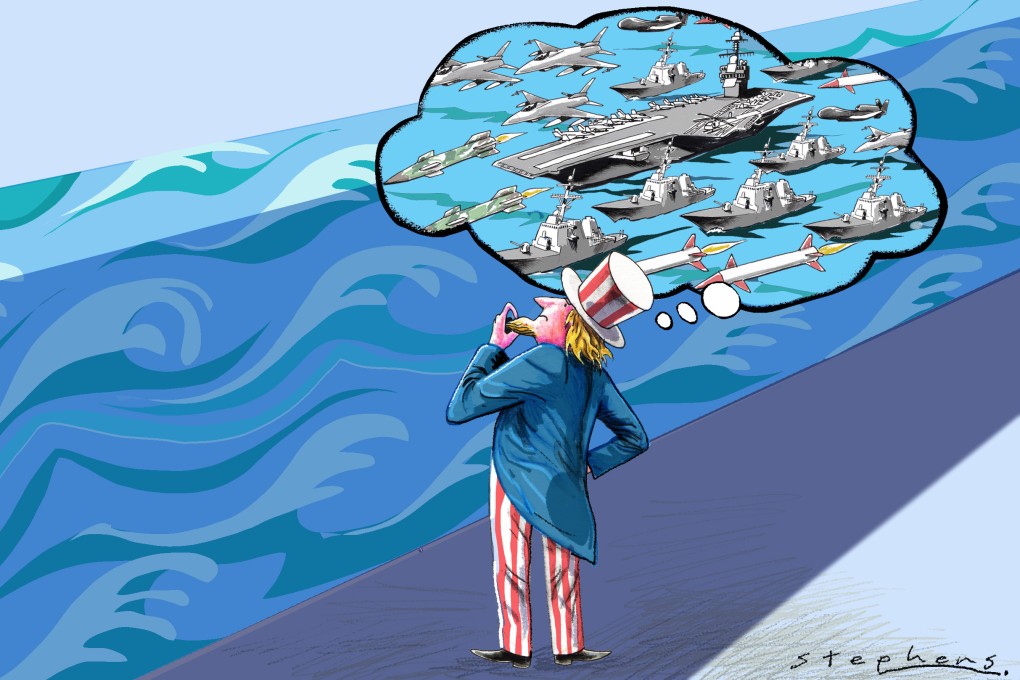Advertisement
Opinion | In the South China Sea, US military projection is never the answer
- To provide a deterrent to China’s domination of the South China Sea, the US would need to place its warships, planes and missiles in the region, possibly the Philippines
- However, any scenario that doesn’t involve US accommodation of Chinese interests, and China’s accommodation of its neighbours’ interests, won’t end well
Reading Time:4 minutes
Why you can trust SCMP
11

There is an ongoing discussion in Washington circles as to what the US should do about China’s creeping military control of the South China Sea. Various suggested solutions present their own problems. Moreover, conflation of the US’ security interests with those of China’s rival claimants is a double-edged sword.
The US faces a dilemma. To maintain its hegemony and get China to back off from its bullying of rival claimants, it needs a sustained deterrent in the region. China has militarised the features it occupies and modernised its military to the extent that it would probably overwhelm US forward-deployed forces before reinforcements from extraregional bases could arrive.
Moreover, China’s rival claimants are more or less helpless in the face of its “salami slicing” and harassment of their resource-related activities in their own exclusive economic zones. They need American backup. If the US fails to sufficiently provide this, they will question its role as a regional security guarantor and consider making deals with China instead.
Advertisement
Thus, to reassure these claimants and not lose them to China, the US would need to place its warplanes, warships and missiles in the region.
The Philippines would be the most likely host. Indeed, the implementation of the US-Philippines Enhanced Defence Cooperation Agreement, which was delayed under president Rodrigo Duterte, would allow the US to pre-position personnel and defence materiel, including perhaps intermediate-range missiles.
Advertisement
But just whose interests would the US be protecting? If it is protecting both its interests and the claimants’, is the risk involved an acceptable trade-off for the claimants?
Advertisement
Select Voice
Choose your listening speed
Get through articles 2x faster
1.25x
250 WPM
Slow
Average
Fast
1.25x
